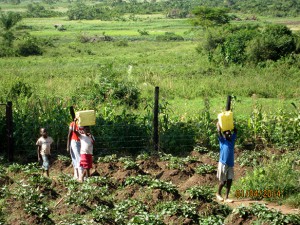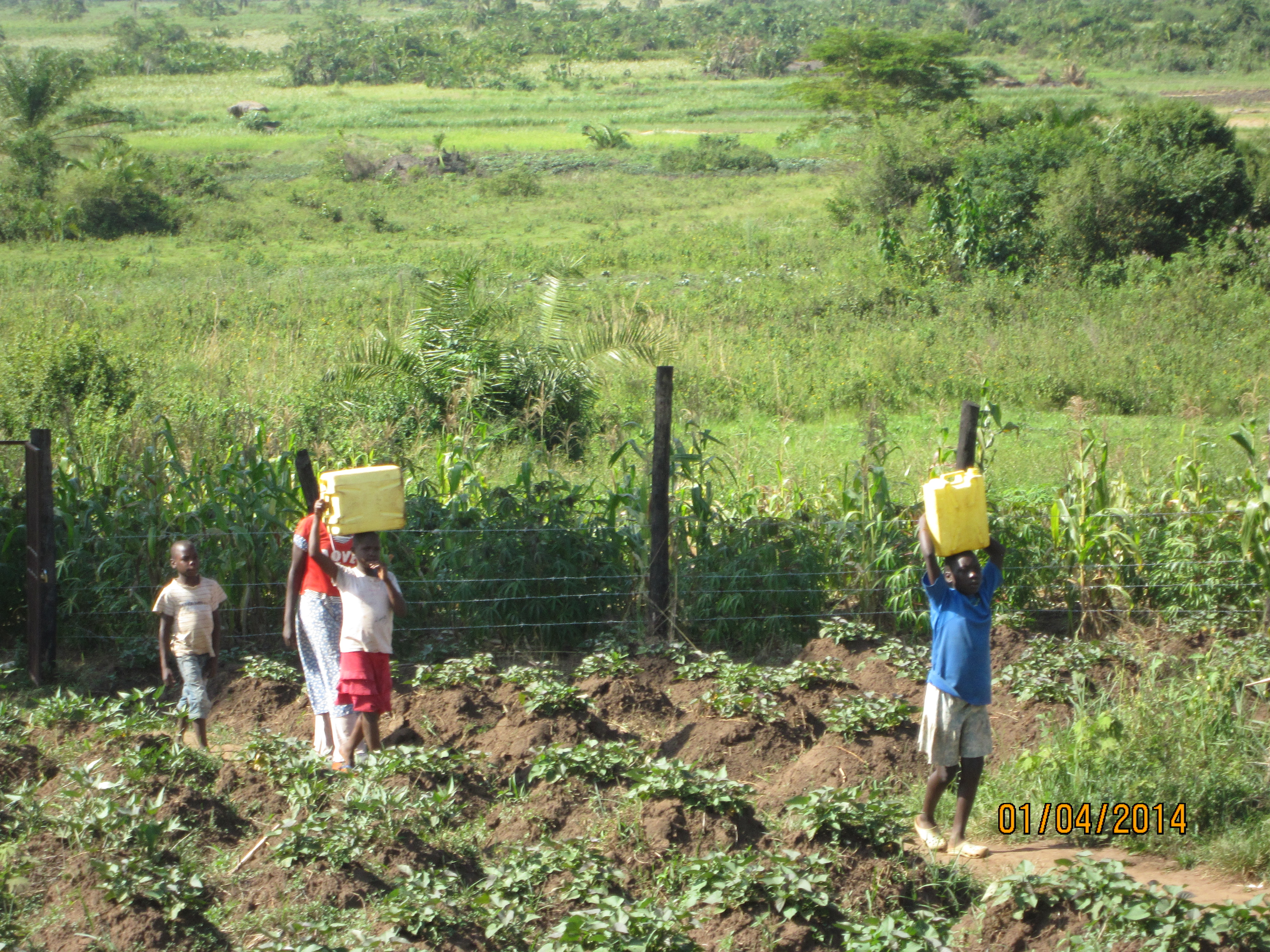


In Norway we expect fresh water running out of the faucet every time we turn on the tap. This is not the case in Nyenga. In Uganda running water is found mostly in the cities. Nyenga Children’s Home is located out in the countryside, where there is no public water supply. Some of the neighbors living in houses with tin roofing collect rainwater, while the rest will have to go to a well to get water for their everyday use.
The children’s home has been collecting rainwater ever since it was built. Even though there can be periods with heavy rain, dry periods can also occur. The collected rainwater will then not be sufficient for the home’s demand and additional water will have to be brought in from the nearest well. The well located by the New Horizon School, is approximately 200 meters away from the children’s home. Using a manual pump, jerry cans of all sizes are filled with water. Children and adults carry everything from 2 to 20 liters back to the home, with the cans often placed on their head. The children at the home have this as one of their daily chores.
This solution has been under evaluation for some time. The arrangement is time consuming and often makes it difficult to keep order in all the cans and whose turn it is to go get water.
Therefore a water pipe has been installed between the well and a tank behind the girls’ house. This tank is elevated above the ground and will therefore give pressure in the tap when it is filled with water. An electric pump has also been installed into the well and will supply water to the pipe. The pump receives power from a sun cell panel on the roof of the guesthouse. The electrical cable was dug down together with the water pipe.
During the project people of all ages got involved in the work. The digging was done not by machine, but manually by 8 strong men. The first day they all showed up, the next day they were only 2. The rest had given in.
The children’s home now has crystal clear water running from the faucet. And with a daily consumption of 600 liters this saves them from a high number of heavy loads, something which may also be beneficiary for children growing up?


![[:no]Nyenga Foundation[:]](https://www.nyenga.org/stg_ba20b/wp-content/uploads/2024/09/nyengao.png)


 Norwegian
Norwegian